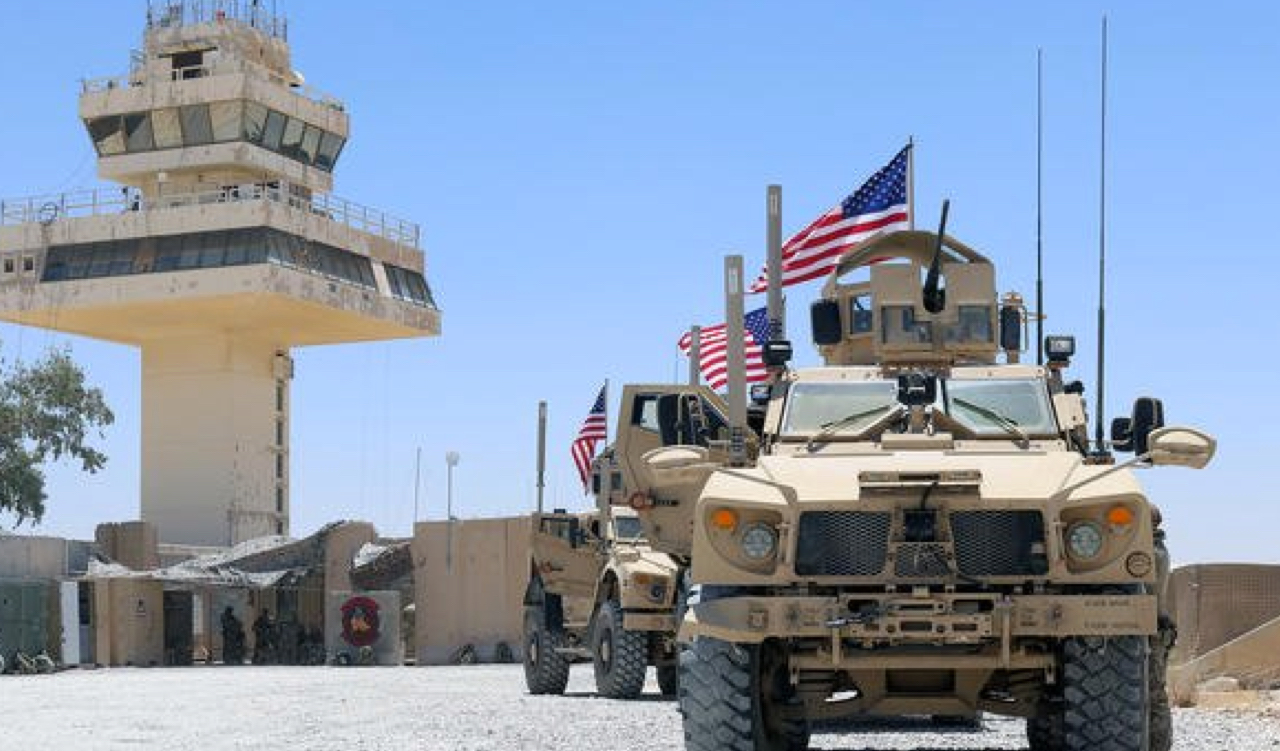U.S. responds to ‘close-range ballistic missile’ attack with strikes in Iraq
Both of the targets struck on Wednesday morning belonged to Kata’ib Hizbollah.

WASHINGTON DC, United States (Kurdistan 24) – Hostile forces in Iraq launched what the Pentagon is calling a “close-range ballistic missile” against US forces, Deputy Pentagon Press Secretary Sabrina Singh told journalists on Tuesday.
The attack occurred the night before on Al Asad Air Base in Anbar Province in western Iraq, Singh said, as she characterized those responsible for the attack as “Iran-backed militias.”
But she also described the damage as minimal, saying the attack had “resulted in several non-serious injuries and some minor damage to infrastructure.”
An AC-130 gunship was loitering in the area at the time, CENTCOM explained on X. The C-130 “maintained visual confirmation of the individuals from the time of the launch to the time of engagement,” and “this strike resulted in several enemy casualties,” it said.
On 21 Nov. an AC-130 gunship engaged individuals responsible for launching a missile attack on U.S. and Coalition personnel at Al Assad Airbase, Iraq. The gunship maintained visual confirmation of the individuals from the time of the launch to the time of engagement. This strike… pic.twitter.com/KGSeAGi3fk
— U.S. Central Command (@CENTCOM) November 21, 2023
White House Overcomes Inhibitions Against Strikes in Iraq
The U.S. response marked the first time that the Biden administration responded to a strike on U.S.forces inside Iraq with an attack inside Iraq itself.
Previously, it had responded in Syria. It is conscious of the fact that U.S. troops are in Iraq at the invitation of the Iraqi government, and it thought that by not attacking hostile elements there, it would avoid the kind of tensions that might cause Baghdad to rescind that invitation.
On the morning of November 22 in Iraq, U.S. Central Command (USCENTCOM) forces conducted discrete, precision strikes against two facilities in Iraq. The strikes were in direct response to the attacks against U.S. and Coalition forces by Iran and Iran-backed groups, including the… pic.twitter.com/HySbSFNlp5
— U.S. Central Command (@CENTCOM) November 22, 2023
That seems to have changed, particularly as further U.S. attacks inside Iraq followed the initial response. Early on Wednesday morning, U.S. aircraft struck two other targets in Iraq, as CENTCOM later announced.
Both of the targets struck on Wednesday morning belonged to Kata’ib Hizbollah, Reuters reported, citing an anonymous U.S. defense official.
“The strike by fighter aircraft targeted and destroyed a Kata’ib Hizbollah operations center and a Kata’ib Hizbollah Command and Control node near Al Anbar and Jurf al Saqr, south of Baghdad,” Reuters said.
US and Iraqi officials later confirmed that eight fighters of the Popular Mobilization Forces (PMF) were killed. Angered, Iraqi officials in response issued a sharp condemnation of the attacks, saying they were not coordinated with Baghdad, according to the government's Iraqi News Agency.
Last week, the U.S. named six individuals affiliated to Kata’ib Hizbollah as Specially Designated Global Terrorists.
Read More: US Treasury Dept sanctions six Kata’ib Hizbollah members and associates
Defense Department Wanted Tougher Response: Wash Post
For over a month, it has been evident that Washington was not succeeding in its aim of deterring attacks on U.S. troops in Iraq and Syria. The Biden administration was far too restrained. Iran and its proxies easily absorbed the limited damage caused by the limited U.S. strikes.
Read More: Limited U.S. strikes on Iranian targets in Syria fail to deter attacks
Behnam Ben Taleblu, a senior fellow at the Foundation for Defense of Democracies, noted precisely this point regarding the latest attack.
Ben Taleblu advised Kurdistan 24 that the fact that U.S. forces at Al Asad Air Base were “attacked by missiles and not rockets constitutes a marked escalation by Iran and its proxies.”
Ben Taleblu criticized what had been Biden’s “hesitancy in Iraq” which, he said, “had helped undermine deterrence, especially when responding to attacks originating in Iraq on U.S. forces by responding in Syria.”
Indeed, Treefa Aziz, the Representative of the Kurdistan Regional Government (KRG) in Washington, told Kurdistan 24, “Regular attacks on US assets in Iraq and the Kurdistan Region are a major concern of theirs; it is a major concern of ours.”
Read More: Regular attacks on US assets in Iraq, Kurdistan ‘major concern’, says KRG envoy
Earlier this week, The Washington Post reported that Defense Department officials were frustrated with “the limited retaliatory strikes approved by President Biden” in response to the attacks on U.S. troops.
“Administration officials have urged Tehran repeatedly over the past month to rein in the militia groups it supports,” the Post said, “cautioning that the United States has ‘the right’ to respond ‘at a time and place of our choosing.’”
“But those warnings have gone unheeded,” it said.
The U.S. response to the latest attack—with three strikes in Iraq itself—is more vigorous than any previous response. But whether it is sufficient to deter future assaults against U.S. forces remains to be seen.